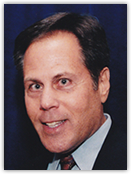Defeating every Republican should be the goal in 2024
April 19, 2023 12:00 am
St. Mark’s Episcopal Church (stmarks.net) is the Episcopal Church closest to the United States Capitol building. In the last decade, it is perhaps best known for hosting the annual National Vigil for All Victims of Gun Violence, the most recent of which President Joe Biden and Speaker Nancy Pelosi spoke on Dec. 7.
The church is less well known as a “straight” faith community that has provided a home for LGBTQ people since the late 1980s, when “faith community” often meant “homophobia.” LGBTQ people have always been a minority of members, but have never felt like a minority because being queer is just like being a lawyer: an interesting fact that does not define us. Perhaps the defining characteristic of St. Mark’s is that we live our faith by telling and listening to our stories. Here following are several that illustrate that point.
For example, Keith Krueger started coming to St. Mark’s in the mid-1980s and found a welcoming, mostly straight community. “During the start of the AIDS crisis, St. Mark’s immediately stepped up to support the Episcopal Caring Response to AIDS (ECRA), and the community particularly supported my late partner in me during difficult times…. I stay because it is a community that values questioning and living together as we journey through life. The best part of St. Mark’s are its members who strive to create a tolerant and open world,” Krueger said.
John Lineberger, a long-standing member who recently died, took adult confirmation in 1989 where everyone was invited to be “authentic,” and share their story. He asked the clergy how welcome gays were at the church and told they had held every office of authority, but gay issues were “not talked about.” So, he asked if that meant “you have a place here, but don’t make trouble.”
That question sparked a loud, overheard discussion between the Rector and Associate Rector, and he was then told, “You are absolutely invited to be honest about your life here with us without exception. There is no disconnect between being a member of St. Mark’s and being gay.” John was relieved, and felt like he had been overhearing his parents having an argument. “I liked the people of St. Marks and didn’t want to have to go back to church shopping. I had found home. Maybe it was messy, but it was home,” Lineberger wrote.
Rob Hall’s first Sunday was in 1988 on the 100th anniversary of the church on the invitation of a straight work friend. He was closeted then because he came from a southern tradition and was involved in Democratic politics. He found that “St. Mark’s was the perfect place for me to find my path as a progressive Christian and to help guide me spiritually as I came out while serving on the Vestry (the Church’s governing board) “with the help of great friends, compassionate clergy, and a good therapist.”
One of the clearest signs of queer acceptance came in 1997. Jim Adams had retired and we were in the search/discernment period for our next rector. Interestingly, our Priest-in-Charge during the search was Jim Steen, an openly gay man. The race for Senior Warden (lay leader of the Vestry and Parish) was probably the most consequential election in parish history. One candidate was a pillar of the community and former senior warden who advocated for continuity, including possibly installing as Rector the most recent Associate Rector Susan Gresinger (who had recently departed so she could be considered). Rob was the other and told the community that he favored an open process and wanted to see the work of the search committee. The questions parishioners asked him showed that they realized he represented change. Rob remembers that, “My sexuality was brought up in every single conversation. . . . I would be St. Mark’s first gay senior warden serving with a gay interim priest. Would the community think we were becoming a gay church? Would I take the parish in another direction before a new rector could be installed? At 36, was I too young to take the helm of the parish?”
Rob won and led us through a period of change, including calling an African-American rector, Paul Abernathy, who would serve for the next 17 years (and sometimes included in his sermons that his gay brother had died of AIDS). In 1999, the parish, after a series of meetings, also decided to embrace same-sex unions. At the final meeting, about 80 of us were grouped in tables who talked and then reported to the rest of meeting. What was amazing was that virtually every comment was positive. One parishioner quipped during one of those meetings that “We already decided this issue when we elected Rob.”
Lesbian Belle Elizabeth McCain came to St. Mark’s in 1989. She came at Rob Hall’s invitation and, though she identified as straight, she was naturally welcomed by the gay men in the choir. “We were preparing to go on a tour in England and I came out at the choir retreat. Actually, somebody sort of outed me by saying ‘We hear there is a lesbian soprano.’” She says she has always felt accepted as a lesbian at St. Mark’s. “Jim Adams defended me to my homophobic and fundamentalist brother” telling my brother that “I was a respected member of the church and that I was accepted as a lesbian.”
Years ago, she recalls, LGBTQ members formed the Lavender Lions (now the Lambda Lions). The group continues to meet on a sporadic basis. The parish now has several gay couples who are parenting children, at least two couples engaged and planning weddings.
As for me, I came — and came out —- much later. I was a married “straight” man when my then-wife and I came to St. Mark’s. After a horrible divorce, I finally figured out I am gay in 2001. I don’t really think about being gay at St. Mark’s because there are so many of us in so many roles, including our Rector, Michele Morgan, a married lesbian, and our Seminarian, Joel Martinez, a married gay man. I’m now the church’s treasurer, continuing the tradition of LGBTQ people in church leadership roles.
For more information about St. Marks, visit stmarks.net; a timeline regarding its LGBTQ+ inclusion is at stmarks.net/lgbtq-and-st-marks-history.
Randy Marks is a longtime member of St. Mark’s Episcopal Church, Capitol Hill.
Categorised in: News, Washington Blade
